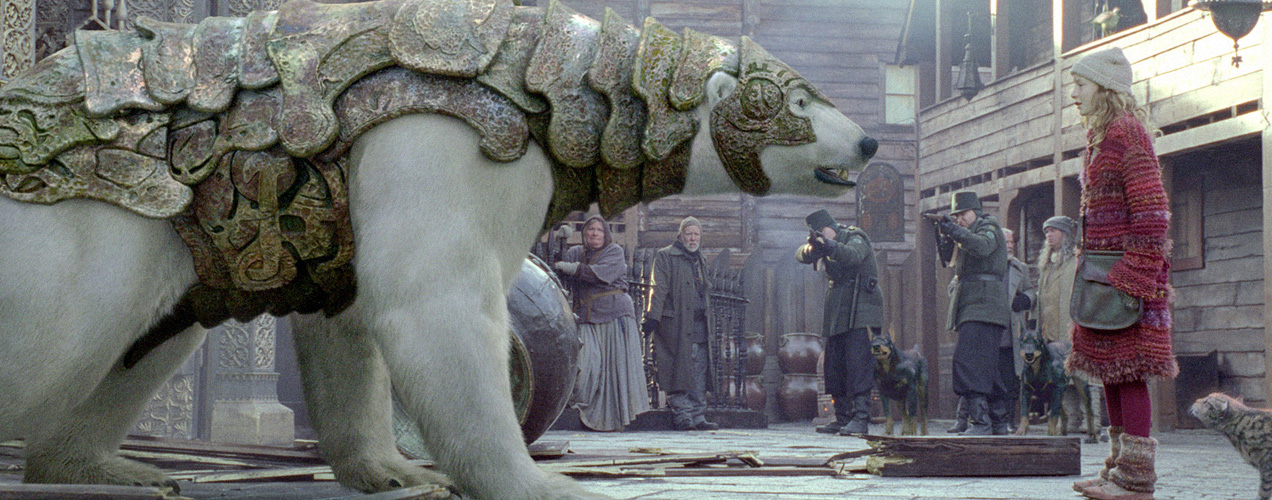2007 / Chris Weitz > Boring and bloated though undeniably gorgeous, it’s no surprise that The Golden Compass failed miserably with both critics and audiences. Once you get past the eye candy, the film lacks the charisma to stay afloat, which is too bad, because now we’ll probably never get to see the story finish. This also marks a serious misstep for Weitz, whose About a Boy was full of heart and wonder.
Category Archives: United States/Canada
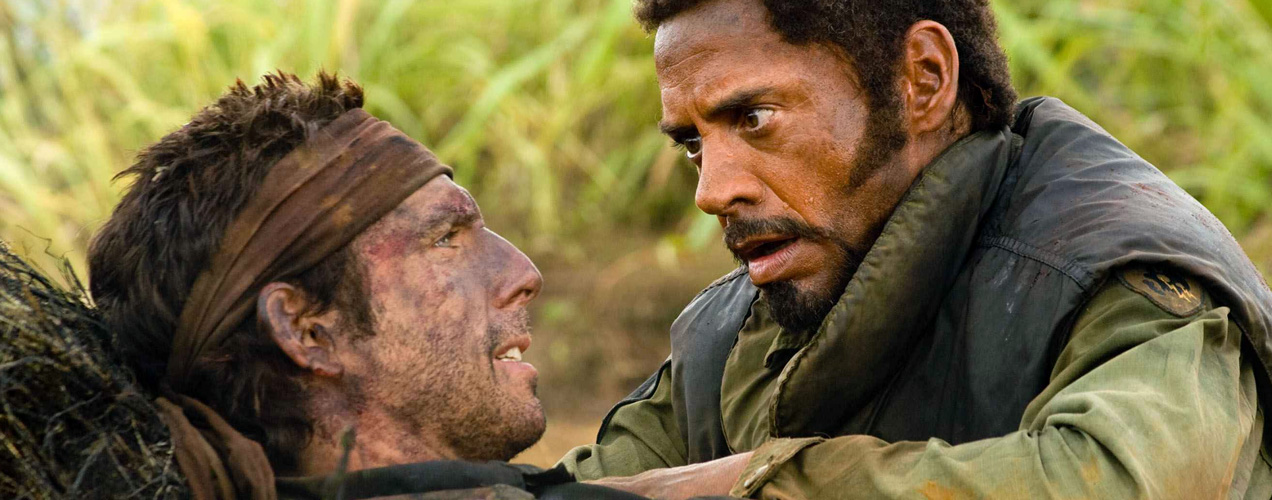
Tropic Thunder
2008 / Ben Stiller > Riding on the waves of a star-studded cast and one of the best (and funniest) marketing campaigns for a comedy I’ve ever seen, Tropic Thunder had some of the highest expectations I’ve had for a film all year. But, as it often happens when a lot of big egos join together in one project, the film ends up being more a collection of multiple hilarious scenes rather than a successful, comedic whole. Specifically on point are Robert Downey, Dr. and the head-splitting brilliance of Tom Cruise who both take their ridiculous characters to the perfect level of seriousness. But staggering behind seems to be Ben Stiller, whose schtick, however self-deprecating, feels overused and works mainly as a vehicle to move the story forward. Some of the lines, admittedly, are some of the funniest in recent film memory, though one of the most underrated may be Jack Black’s (after shoving heroine into a couple of guards’ faces): “Let’s move! We only have 16 hours before they wake up!”
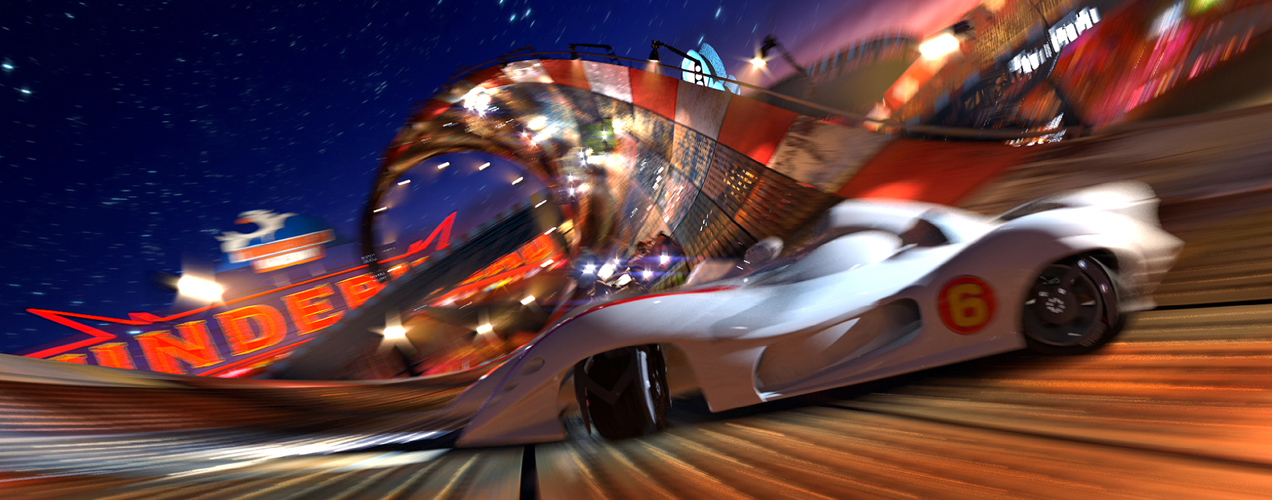
Speed Racer
2008 / The Wachowski Brothers > Ever since The Matrix sequels reared their pretentious heads, The Wachowski Brothers have been on my shit list for their self-serving, pseudo-philosophical bullshit. V for Vendetta, even with a fine directorial effort by James McTeigue, couldn’t rub off its leftist silliness for a second to let me breathe in the excitement of the man behind the mask. And with Speed Racer, they almost cornered me into something similar with its heavy-handed anti-capitalist angle. But alas, the prettiness (of both the film and Christina Ricci) saved the day. It’s fun, lots of fun, even with the annoyance of Spirtle and Chim Chim, though I gather, as someone who has never seen the animated episodes, that this was part of the show’s charm.
Emile Hirsch seemed a bit miscast, but honestly, nobody cared much for acting in this. (On that note, when did Dr. Jack Shephard leave the island and become Racer X?) The true star of the film was the visuals, and my, how glorious they were. You know how the Crayola 64 packs always had a few neon, ultra-bright colors? Apparently these were the only ones used when doing the Speed Racer storyboards. The Brothers utilize their genuine feel for style in conjunction with an aptly thrown in kitsch factor that makes me wonder what everyone who threw down sharp one-liners at this gentle giant were actually expecting.
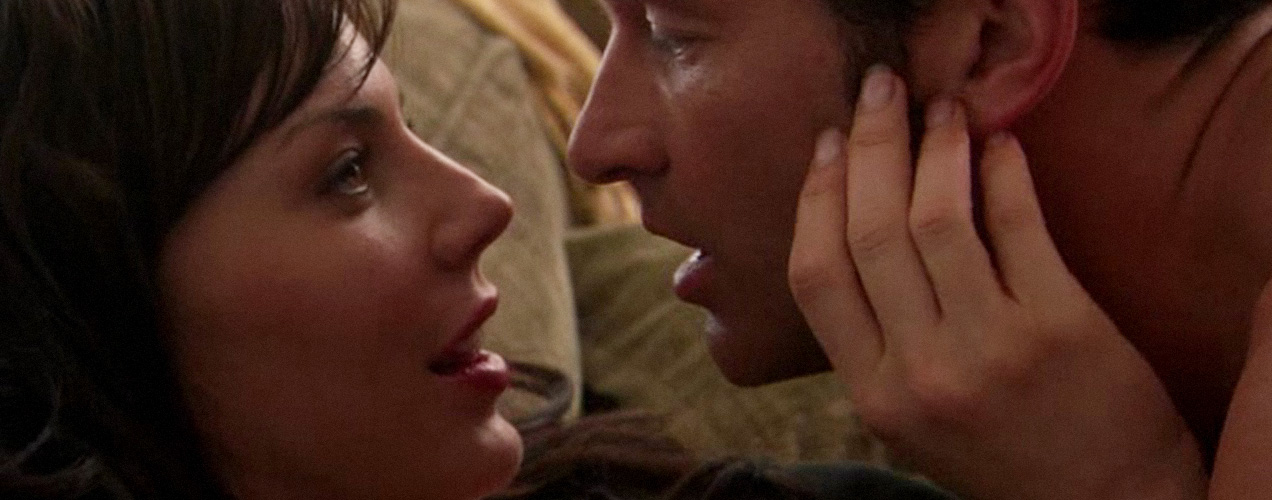
Meet Market
2008 / Charlie Loventhal > I’m not sure why I watched this (Krista Allen, maybe?), but Meet Market is basically a self-congratulating ode to those who believe there’s some sort of sexually charged possibility in picking out the right tomato. It’s not bad by any means, but it’s not memorable either. The kind of metropolitan dating flicks that actually work to the end are the ones that bring something new, not used stories picked up from existing flicks. It’s an interesting effort, no doubt, but one that’s subpar and doomed to be filler on cable television.
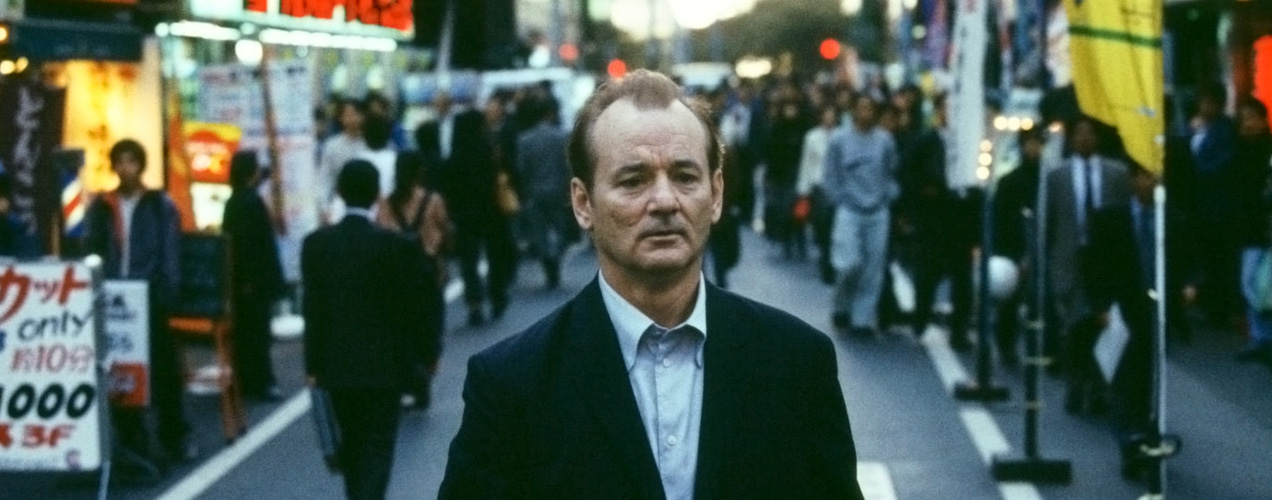
Lost in Translation
2003 / Sofia Coppola > Coppola’s sophomore effort has quite a few tangibles working for it: Impactful yet understated acting, a functional/moody location and a near-perfect mixture of ambience and rock for the soundtrack. But these only tell half of the story. The feel of it all—being alone in a city where your mind and body seems misplaced, not knowing if what tomorrow brings is worth waking up or going to bed for, wondering if the past you’ve lived is the past you’ve wanted to live—these are the intangibles that are undeniably infused into the self-analyzing experience that is Lost in Translation.
But I’d be lying if I said this was a perfect film: I find Scarlett Johansson’s character to be weak, though part of it’s because Bill Murray puts forth a subtle yet powerful performance portraying a man of such humanity that she comes off comparatively cookie-cutter. The pacing isn’t always perfect, with hiccups that seem misplaced and solo scenes of Johansson that pale in comparison to those of Murray. And while I never really found the film to be racist by any means, the xenophobic viewpoints sometimes come off silly rather than calculated. But the point remains that Coppola, with the help of Brian Reitzell and Roger J. Manning Jr.’s effusive score, has concocted a mood piece of master quality that takes away our sense of vengeful cynicism and fills it with the kind of hope and bewilderment that both the young and the young at heart seek.
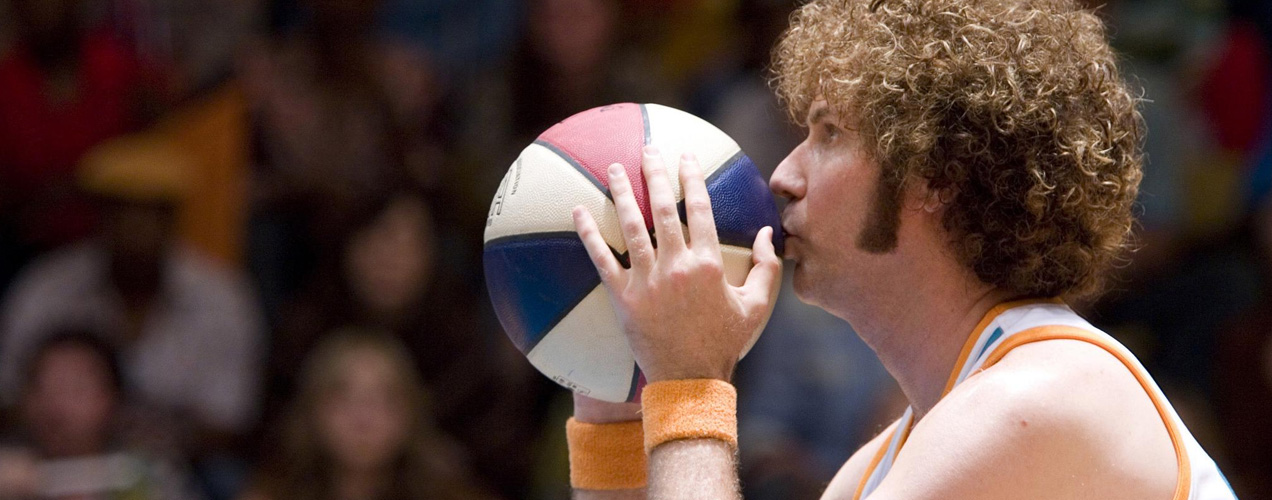
Semi-Pro
2008 / Kent Alterman > Somehow, Will Ferrell has become a product (and that’s fine). Since Frank the Tank first streaked through the college campus in Old School, his hyper-persona has become a face that sells movie tickets. This has led to many memorable parts: Ricky Bobby in Talladega Nights, Buddy in Elf, and a subtler Harold Crick in Stranger than Fiction. But a hyper-persona alone cannot make a film work. Without proper casting, writing and direction, this throwback comedy during the days of the American Basketball Association, with crazy balls, crazy moves and Julius Erving, falls flat even before it begins. Simply put: There’s just too much Ferrell and not much of anything else. If we want that, there are better options. Sure, the viral marketing ploy with Heidi Klum in the Sports Illustrated Swimsuit Issue was brilliant, but that was better than the film itself. Hopefully the studios got the message, as Semi-Pro is Ferrell’s worst performing film to date.

Wanted
2008 / Timur Bekmambetov > It’s usually a terrible idea when 70% of a film’s plot is told over narration within five minutes, but Russian blockbuster director Bekmambetov brings his Night Watch fame this side of the Pacific with an action-packed extravaganza that’s short on plot and long, very long on intensity. In fact, Wanted may have some of the best action sequences ever seen on film. Suspending disbelief is a priority in this adaptation of a comic grounded on prophetic assassins—This is also partially because we know Angelina Jolie has the potential to blow stuff up, but James McAvoy? Not your likeliest action star, but the special effects make it all work in spades.

Doomsday
2008 / Neil Marshall > You have to give Marshall credit for trying to create an intelligent mixture of The Road Warrior and 28 Days Later, but somewhere along the way, the focus shifted away from the storyline into chases, beheadings and twists seen from a mile away. Rhona Mitra, the original Tomb Raider, fitfully shows that she had the right to star in the films of her former alter ego, and Craig Conway is superb as a chilling vision of humanity gone awry. Though generally exciting, Doomsday’s premise of de-evolution in modern society never really develops into anything fresh to deserve the kind of cult status it could have achieved.
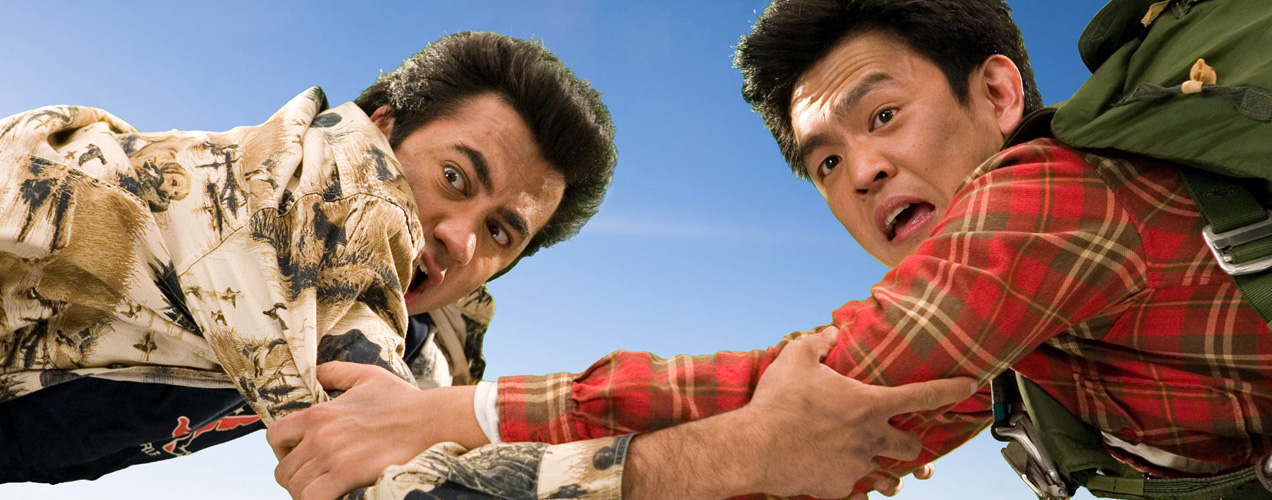
Harold & Kumar Escape from Guantanamo Bay
2008 / Jon Hurwitz & Hayden Schlossberg > Let’s just keep it simple and say this is an out and out absurdity of a film. There, that makes things easier. Harold & Kumar Escape from Guantanamo Bay won’t win Oscars (nor it should), but it does things that keep you glued to the screen until the end—even through an unbelievable sequence involving George W. Bush where you can’t help but smile. Doogie Howser is all kinds of crazy, and Kumar’s math poetry just makes you tear a little. There is, however, definitely a generational gap in the film that scours it away from a significant amount of moviegoers, and those who are easily offended will probably switch off within the first half hour.
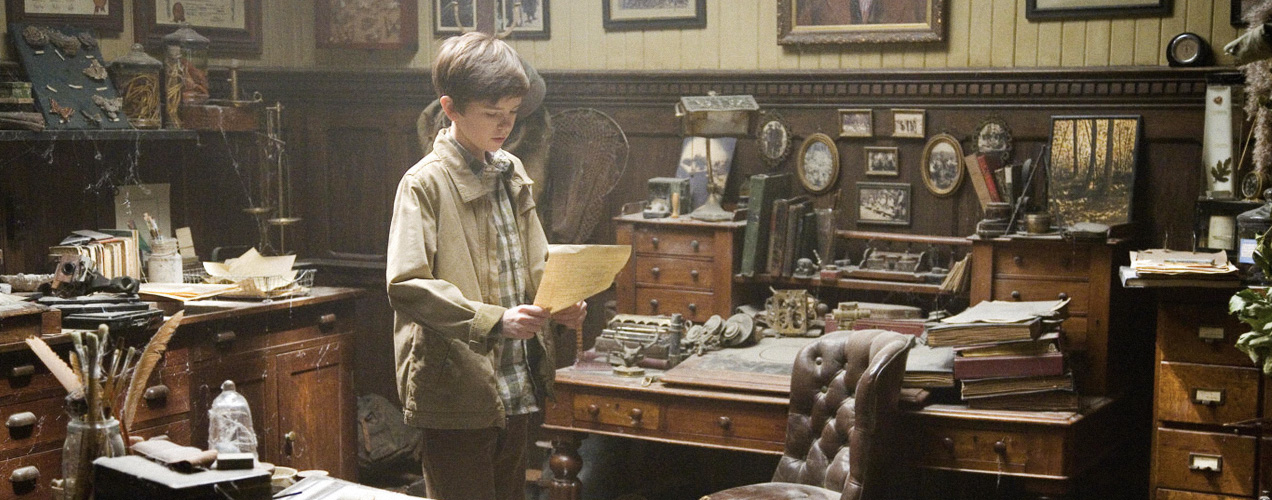
The Spiderwick Chronicles
2008 / Mark Waters > On a small scale, The Spiderwick Chronicles works just fine, but considering the onslaught of fantasy genre blockbusters, it’s a bit harder to swallow the film’s lack of scope. One of the key reasons the genre works so well is the mythos that backs every fantasy world, but in this case, it gets reduced to a miniature description that we’re forced to swallow as if it meant something. Not a terrible effort, but not something that you’ll want to stand in line for the sequel to.

